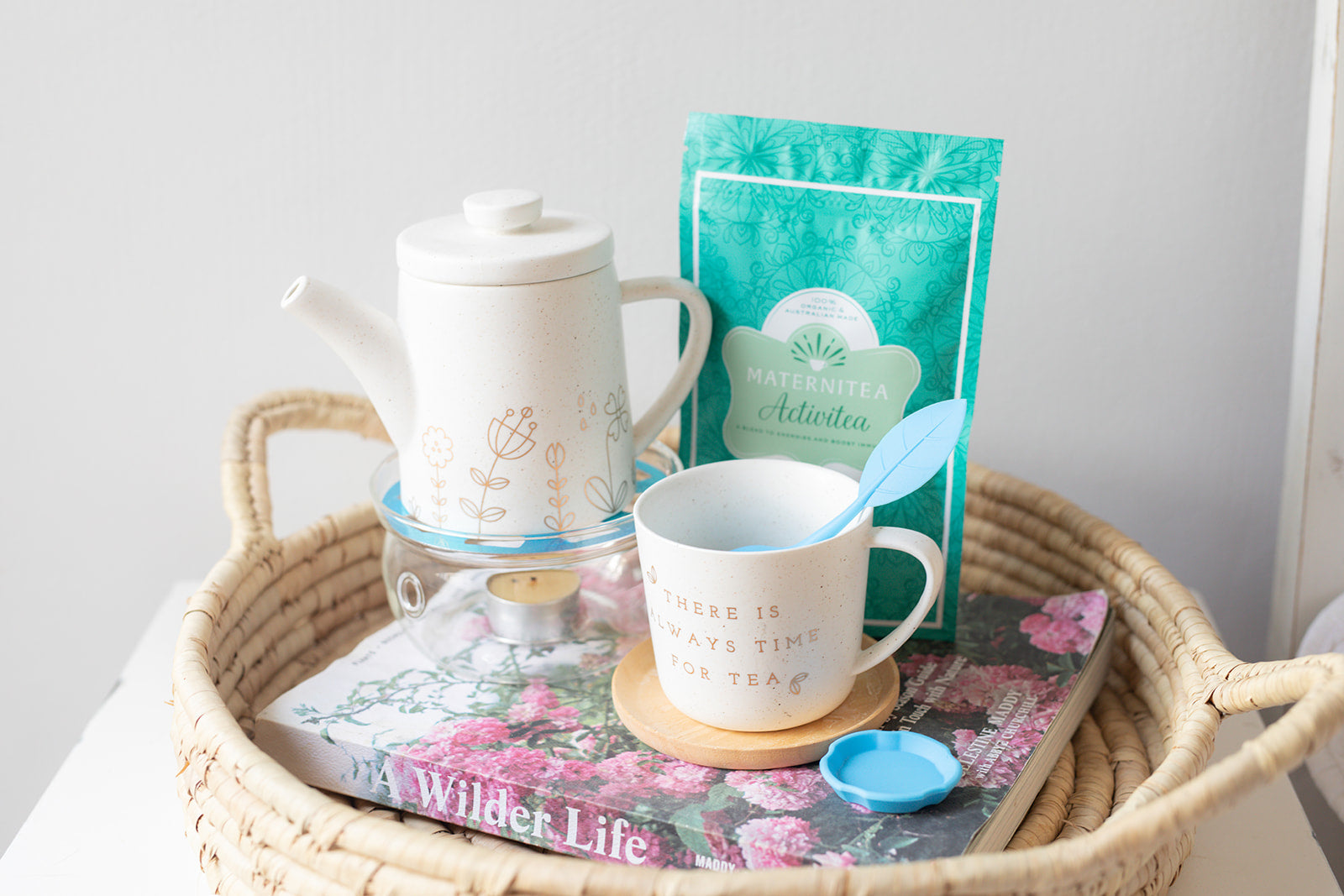The First Three Days
- Posted by MaterniTea Co
-

There is so much focus placed on pregnancy and the birth that many new Mums find themselves feeling shocked, vulnerable or totally unprepared during those first few days after the birth of their baby.
We chatted to the beautiful Jen from Seasons of Mama, who is a Midwife, Calm Birth Educator and a Mother herself, to help us educate our MaterniTea Mums on the top 5 things you might not expect in those precious yet challenging first three days.
Lochia
Is a normal vaginal loss of blood, mucus and tissue that is typically heavy and bright red for the first few days after birth. This occurs regardless of vaginal or c-section deliveries. Lochia will continue to lighten over the course of 2-6 weeks post birth. It is important NOT to use tampons during this time. Larger, heavier flow or preferably Maternity pads should be worn. Once lochia begins to lighten, a regular pad should be sufficient.
Urine and Stools
You may find the muscles in the urinary tract have been stretched post birth and as a result you may experience some leaking. Dont be too alarmed, with time and pelvic floor exercises you can heal and correct this. It is also normal to feel anxious about your first bowel movemeparticularlyily if you have torn or have stitches from a vaginal birth.
Be sure to drink plenty of water and snack on fibre rich foods like apples and dates with nut butter, carrot sticks and hummus, wholegrain cereals and breads. By upping your intake of fresh fruit and veg you can assist you body to achieve a smoother bowel movement without applying more strain to an already tender area.
Ensure you are up and moving around as quickly as is safe and possible as this motion helps your digestive system flow.
Breasts
Colostrum, aka liquid gold is everything your babys marbel sized stomach needs until your breastmilk comes in typically around day three post birth.
You may notice your breasts feeling heavy, tender, swollen, full or even a pins and needles like sensation. Consider having a breastfeeding plan to help you feel supported during this time. Generally babies will have a nice feed post birth followed by a 6-8 hour sleep. This is a great chance to rest yourself as your baby will want to feed more frequently thereafter. It is normal to feel as though all you do is breastfeed your baby.
Perenium
If you have stitches, a physiological tear, graze or some bruising, pain relief can help soothe and make your more comfortable. Ice packs, peri wash bottles and Postpartum Sitz baths can can be a godsend to help soothe, restore and reduce inflammation. Also helpful for hemorrhoids which are common after birth. Keeping the area clean and dry is the key, so change pads frequently, use a peri bottle to wash away excess Lochia, and do your pelvic floor exercises which encourages blood flow to the area to promote healing. Always check with your midwife or healthcare provider its safe to do so first.
Baby Blues
You may notice significant emotional changes such as crying spells, irritability, anxiety and difficulty sleeping as hormone levels (namely oestrogen and progesterone) drop dramatically. Just 24 hours after birth, these hormones return to pre-pregnancy level, which trigger this temporary release (may last up to 2 weeks).
Afterbirth Cramping
This is more common in women with subsequent births; 2nd, 3rd child and so on. These often painful uterine cramps usually last for 2-3 days and are especially common whilst breastfeeding, as your uterus is working to shrink back to its pre-pregnancy size. For some women the cramping can feel mild period-like cramps whilst for others it can feel like early labour cramping. This is called involution and and takes 6-8 weeks.
At MaterniTea our range of Post Natal and Breastfeeding Blends have been designed by a team of Naturopaths, Dietitians and Tea Master to help support you through the challenges and help promote healing and healthy breastmilk supply.






